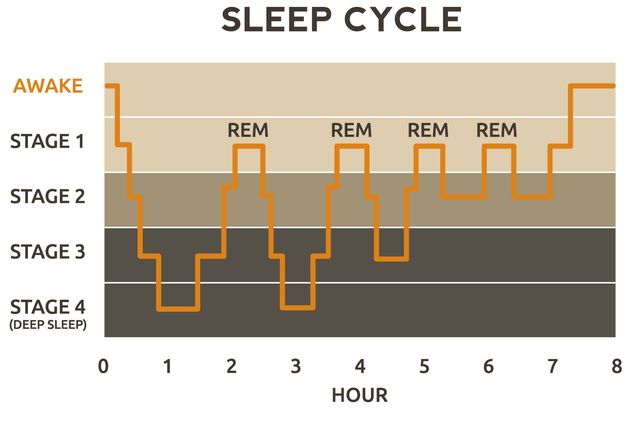How Much Sleep Is Required for Optimal Health? Age Matters.

Human beings are designed to spend approximately one-third of our lifetime sleeping. Ideally, in adulthood, you should sleep about eight hours a night, which adds up to 122 days per year of sleep. By the time you're sixty years old—if you've gotten healthy amounts of sleep—you will have spent at least twenty years of your life asleep . . . and about five solid years in REM (rapid eye movement) sleep, dreaming.
Without proper sleep, people are more likely to: gain weight, suffer from infections, chronic diseases, type-2 diabetes, and heart disease. Psychologically, insufficient sleep can exacerbate feelings of anxiety, depression, and make you more likely to be forgetful and make mistakes. Sleep also helps to balance your mood and emotions.
Unfortunately, as a modern culture, we sleep less and less each year. People of all ages across the country are sleep deprived. Recently, Dr. Nathaniel Watson, president of the American Academy of Sleep Medicine, said in a statement,
"More than a third of the U.S. population is not getting enough sleep, and for children who are in the critical years of early development, sleep is even more crucial. Making sure there is ample time for sleep is one of the best ways to promote a healthy lifestyle for a child."But, how much sleep is ideal for optimizing someone's psychological and physical health—especially during infancy, childhood, and adolescence? This week, for the first time, sleep experts reached a consensus on the recommended amount of sleep needed to promote optimal health from infancy through 18 years of age.
The latest consensus was announced today at SLEEP 2016 (link is external), a joint meeting of the American Academy of Sleep Medicine (AASM) and the Sleep Research Society.
Nightly Sleep Recommendations for Promoting Optimal Health
- Infants four to 12 months should sleep 12 to 16 hours per 24 hours (including naps).
- Children one to two years of age should sleep 11 to 14 hours (including naps).
- Children three to five years of age should sleep 10 to 13 hours per 24 hours (including naps).
- Children six to 12 years of age should sleep nine to 12 hours per 24 hours.
- Teenagers 13 to 18 years of age should sleep eight to 10 hours per 24 hours.
To reach these conclusions, the 2016 expert panel reviewed 864 published scientific articles addressing the relationship between sleep duration and childhood health.The AASM full consensus statement, “Recommended Amount of Sleep for Pediatric Populations: A Consensus Statement of the American Academy of Sleep Medicine (link is external)” (including the above guidelines) was published today in the June 2016 issue of the Journal of Clinical Sleep Medicine.
The Pediatric Consensus Panel who compiled these recommendations found that sleeping the recommended number of hours on a regular basis was associated with better health outcomes that included: mental and physical well-being, improved attention, behavior, learning, memory, emotional regulation, and quality of life.
The panel also found that sleeping fewer than the recommended hours is associated with attention, behavior, and learning problems. Additionally, insufficient sleep in teenagers was found to be associated with a higher risk of suicidal thoughts, suicide attempts, and other types of self-harm.
The researchers recommend that parents who are concerned whether or not their child is sleeping too little (or too much) should consult their healthcare provider for the evaluation of a possible sleep disorder.
Adults Should Sleep at Least 7 Hours Per Night for Optimal Health

The team found that getting insufficient sleep increases the risk of accidents, injuries, hypertension, obesity, diabetes, and depression. That said, they also found that sleeping more than the recommended number of hours per 24-hour period on a regular basis is also associated with adverse physical health outcomes such as hypertension, diabetes, obesity, as well as mental health problems.
No comments:
Post a Comment